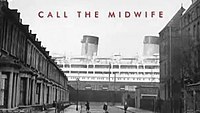Lists


2 Books
fav books
Sort by:
Recent Desc
More lists by unbalancedbrain


movies I loved
List includes: Into the Wild, Sorry to Bother You
December 2022
0
@eileenlamson3



to watch
List includes: Empty Nest, Call the Midwife, Banished
December 2022
0
@eileenlamson3



favorite shows
List includes: South Park, Mad Men, It's Always Sunny in Philadelphia
December 2022
0
@eileenlamson3

movies to watch
List includes: Escape from Pretoria
June 2022
0
@eileenlamson3



tbr
List includes: the southern book club's guide to slaying vampires, the final girl support group, The Radium Girls: The Scary But True Story of the Poison That Made People Glow in the Dark
May 2022
0
@eileenlamson3